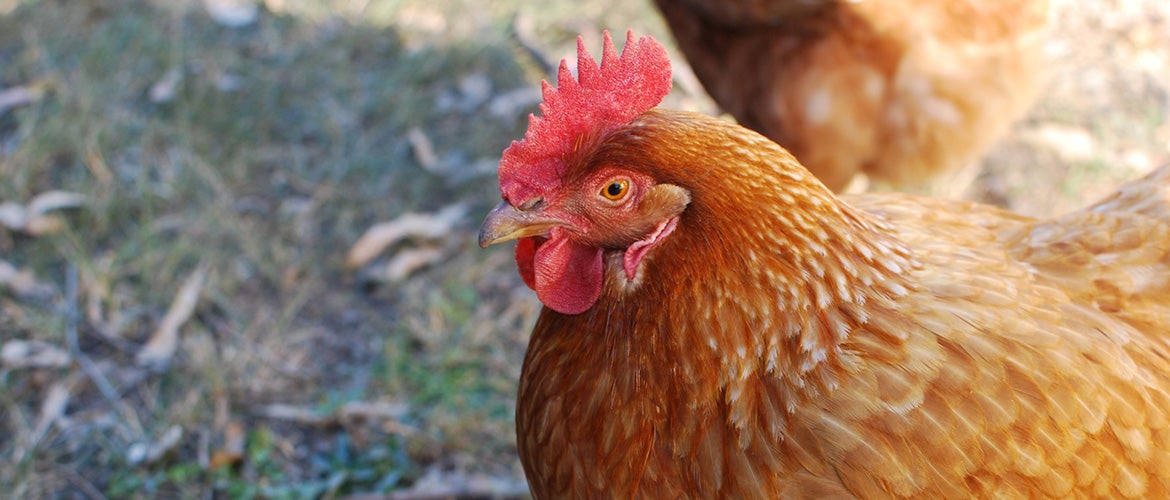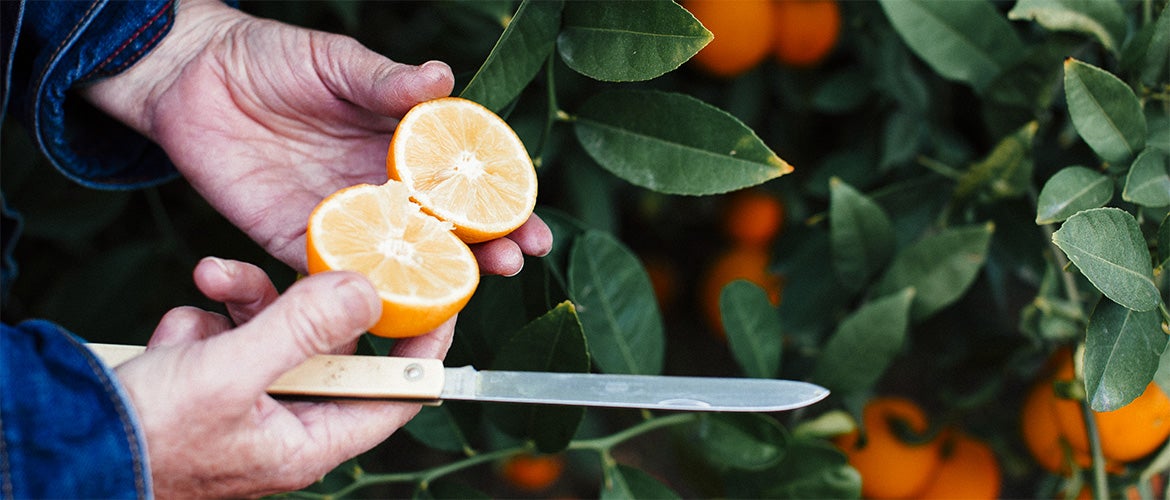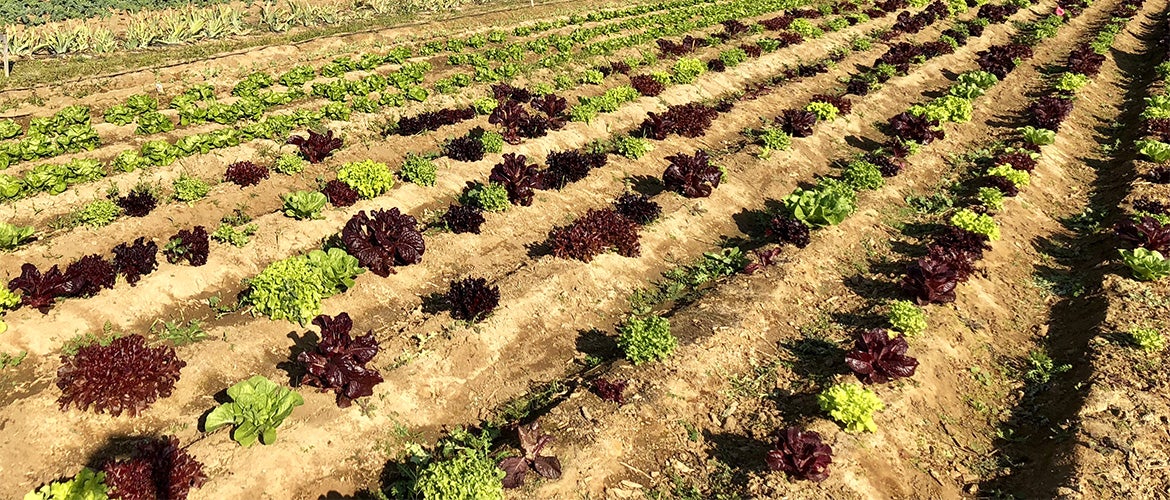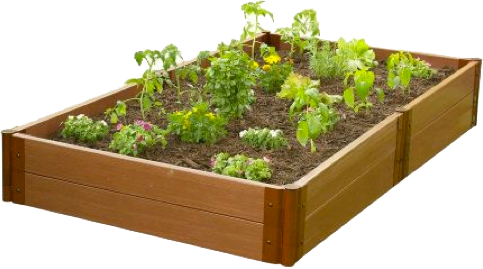Sustainability (HOLD)
Learn about our responsible dining policies, programs and practices.
What's New
Riverside County Department of Waste Resources Sustainability Award Given to UCR for the Department's Sustainability Efforts
On May 2, 2017, the Riverside County Board of Supervisors recognized UCR for implementing sustainable practices:
The University of California is a true leader in sustainable practices from bike sharing to a solar farm which produces up 6.6 million kilowatt hours of electricity each year — the equivalent of powering 960 homes — as well as other innovative campus practices. However, the Department of Waste Resources recognized their contributions toward food waste and their sustainable practices within their UCR Housing, Dining & Hospitality Services division.
This division's sustainable operations include recycling materials such as: cans, glass, plastic, paper and cardboard. All carry out bags as well as most plates, bowls, utensils and napkins are 100% compostable.
UCR works toward reducing their energy and water use by installing CFL light bulbs and ENERGY STAR appliances. For example, this practice creates a savings of more than 500,000 gallons of water per year. They have also gone tray-less which saves an additional 8,000 gallons of water per week. This tray-less practice reduces thousands of pounds of food waste as customers can only eat what they can carry.
Continuing the path of reducing waste, UCR recycle food waste includes 100% of cooking oil, coffee grounds, and composting 250 tons of food waste each year.
UCR Housing, Dining & Hospitality Services division also works toward reducing their carbon footprint. To enhance this goal, they seek fresh locally grown produce and also support Cultivate R'Space which is an on campus self-sustaining community garden program operated by a student collaborative.
UCR has earned a Gold STARS rating for their overall sustainability efforts from the Association for the Advancement of Sustainability in Higher Education.
From "Campus Dining Today":
Vegetables Take Center Plate
Article on how a UCR Chef used vegetables from local farms to create healthy and elegant recipes - such as his Tomato Gazpacho with Avocado & Cucumber Salad and Roasted Vegetable Platter. Includes recipes. Read article
UC Riverside Cooks Up New Agricultural Research Center
Article on UCR Today
UC Food Observer
UC Food Observer is your daily selection of must-read news on food policy, nutrition, agriculture and more; curated by the University of California as part of its UC Global Food Initiative.
Farmshare at UCR
Article on UCR Today
Changing the World One Cup of Coffee at a Time
Coffee CSR programs
A Top Chef at UCR
Article on UCR Today
Sustainable Operations
Recycling
• We recycle cans, glass, plastic, paper and cardboard.
• Most bags, plates, bowls, utensils and napkins in all of our Campus Restaurants are 100% compostable.
• All of our carry out bags are 100% compostable.
• We divert our coffee grounds to the R’Garden as a soil amendment and our food waste dehydrator supplies an additional 10 tons of soil amendment.
Water
• The latest dishwashing machine at Aberdeen-Inverness Residential Restaurant saves more than 500,000 gallons of water per year.
• By going tray-less, Residential Restaurants save more than 8,000 gallons of water per week.
Waste
• We recycled 500,000 pounds of food waste last year including 100% of cooking oil.
• By going tray-less, Residential Restaurants saves thousands of pounds of food waste each year because customers only carry as much as they can eat.
Energy
• We have installed energy-saving CFL light bulbs in all Housing, Dining & Residential Life facilities.
• We use ENERGY STAR appliances and equipment in our kitchens when available.
• Occupancy sensors have been installed in some rooms and vending machines to reduce energy use.
Carbon
• By 2020, UCR Housing, Dining & Hospitality Services’ goal is to spend at least 20% of its food budget on local and/or sustainable foods. We are currently at 17%.
• Beefless Friday’s and Meatless Monday at the Residential Restaurants helps to reduce our “carbon footprint.”
Eco-Friendly
Locally Sourced
• More than half of our fresh produce is grown locally; helping us reduce carbon emissions.
• We support the UCR Campus R’Garden by purchasing seasonally available produce.
Green Chemicals
• We use Green Seal Certified cleaning chemicals.
Vegan/Vegetarian
• More than a quarter of the menu entrées served at the Residential Restaurants are vegan or vegetarian as a healthy and eco-friendly alternative to meat.
Right-Sized Portions
• Residential and Retail Restaurants serve properly sized portions to reduce waste.
Compost
• We compost 250 tons of food waste each year including our coffee grounds!
Sustainable Foods
Food Donations
• Surplus food is donated to Inland Harvest - an organization which distributes donated food to local homeless shelters.
Food Spend
• In FY 2014-15, UCR retail and residential food service operations exceeded 20% sustainable food spend.
Fair-Trade Coffee
• All coffee served at Ivan's, Bytes and Scotty’s convenience stores is either certified organic or fair trade. Fair is fair.
• In FY 2014-15, $120,000 was raised towards building water pumps and infrastructure in Guatemala from the sale of UCR's Highlander Blend Coffee. UCR Housing, Dining & Hospitality Services allocated 15 cents per pound, Java City 15 cents per pound, and exporting partners 60 cents per pound.
Cage Free Eggs
• Since 2011, we have only used cage free eggs in all of our Campus and Residential Restaurants.
Locally Sourced
• More than half of our fresh produce is grown locally; helping us reduce carbon emissions.
• In FY 2014-15, 38% of fresh produce purchased was locally grown and 62% of seafood purchased was listed on the Monterey Bay Aquarium Seafood Watch’s Best Choices and Good Alternatives Guide.
Right-Sized Portions
• Residential and Retail Restaurants serve properly sized portions to reduce waste.
Compost
• We compost 250 tons of food waste each year including our coffee grounds!
Vegan/Vegetarian
• More than a quarter of the menu entrées served at the Residential Restaurants are vegan or vegetarian as a healthy and eco-friendly alternative to meat.
Get Involved
Join our efforts of furthering sustainability at UCR.
Beefless Fridays
By not serving beef in our Residential Restaurants on Fridays; we reduce waste, save energy and promote sustainability. You can, too by skipping the beef on Fridays or any other day(s) of the week!
What’s it take to make the beef?
• It takes 1,500 gallons of water to produce just 1 lb. of beef.
• Producing 2.2 lbs. of beef uses the same amount of energy as lighting a 100-watt light bulb nonstop for 20 days.
• Producing 2.2 lbs. of beef results in a greenhouse gas emission equivalent to 80.25 lbs. of carbon dioxide – the same amount that would be emitted by driving a car for 155 miles at 50 mph.
UCR Community Garden
Join the Cultivate R’Spaceprogram and help tend the UCR Community Garden. The garden provides a space for UCR and Riverside community members to grow fresh produce while learning about sustainability. As a partner of the UCR Community Garden, UCR Housing, Dining & Hospitality Services donate dehydrated food waste for the purpose of compost.
Join Cultivate R’Space





